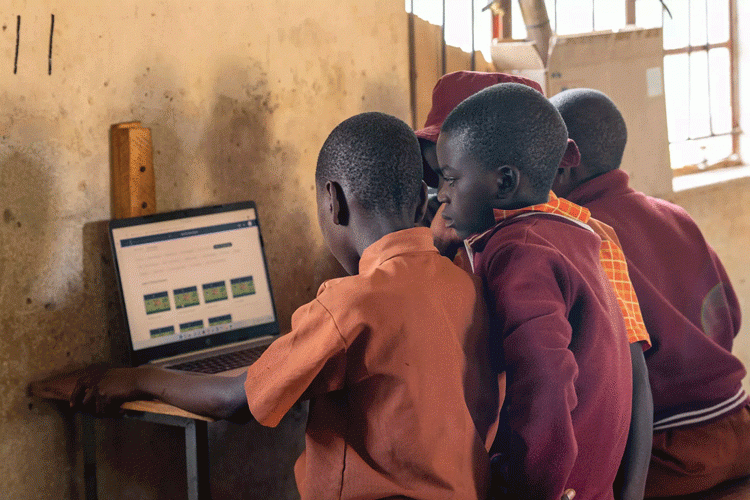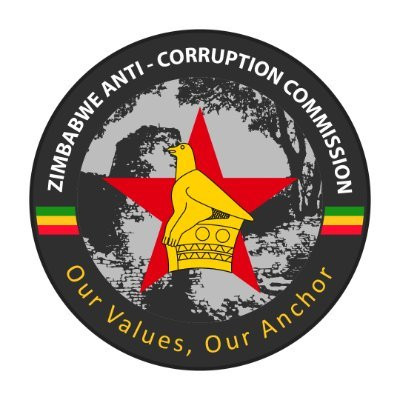
It has been three months since Munashe, a rural Grade Seven pupil, started using the Zimbabwe Learning Passport and she already sees herself conquering the world.
In the impoverished Manicaland province’s Makoni district, where she resides with her parents, the 12-year-old was accustomed to people surviving on tilling unproductive pieces of land for food. Others worked on nearby farms as labourers, while many young girls were married off while at school .
Education had not been viewed as a viable pathway to success for years.
“I had no idea of the opportunities out there,” Munashe said.
That was before she signed into the Zimbabwe Learning Passport, a free online educational platform that has opened a world of opportunities for her.
“Everything on the Zimbabwe Learning Passport is new and exciting. It doesn’t just give us content to pass examinations; it prepares us for the future,” she said, sitting on the verandah of her school, Mutoko St Vincent Primary School. The school is in one of the country’s remote areas and is not connected to the primary electricity grid and now gets power from solar energy.
After reading about and watching videos of different professions available to her if she excelled in her academic studies, one career caught Munashe’s eye.
“I want to be a pilot. I want to travel the world and earn a decent salary,” she said.
- E-learning passport reshapes dreams in remote areas
Keep Reading
The introduction of the Zimbabwe Learning Passport is changing mindsets and providing a gateway to a better future in Zimbabwe’s rural areas, such as Makoni district. In such disadvantaged regions, the combination of lack of electricity and internet connectivity, textbook shortages and poverty has for decades robbed millions of children of quality education and a prosperous future.
Designed and launched in March 2021 by the Ministry of Primary and Secondary Education, in partnership with Unicef and Microsoft, the Zimbabwe Learning Passport is equipped with contents from the national curriculum developed by a selected group of senior teachers from the Education ministry. Users also have access to content from credible global sources.
Munashe and other learners at Mutoko St Vincent Primary School started using the platform in November 2023 after the school was solarised through the Education Development Fund TEACH programme implemented by the ministry in partnership with Unicef, with funding from the UK Government.
The solarisation project equipped the school with a 6,5KVA solar power system that powers the school’s computer lab and 40 power charging stations, the administration block and teachers’ houses. The school bought laptops.
“The Zimbabwe Learning Passport has bridged the gap between rural and urban schools; it has connected us to the global village. The content is rich, and I can already see a difference as learners always want to research various topics,” said school headmaster Obert Mariwo.
Munashe’s class will be the first to use the platform to prepare for public examinations at the school. Her headmaster is optimistic about an improved performance, projecting the pass rate to rise to 50% from previous year’s 13,79%.
Further, the platform is broadening learners' horizons and helping them plot a better future than the one they previously imagined, he said.
“It is opening a window for them to dream bigger, to see beyond the village. The background of this area is rural, and many people didn’t quite value education, but now that they are connected, children can now learn about life in America while they are here,” he said.
He added: “They have a window into the outside world, and they can see what other children out there aspire to. They can now identify a doctor, a nurse or a pilot through the Zimbabwe Learning Passport and the internet. Previously, they would hear about these professions.”
Despite connecting to the platform only a few months ago, the school of 230 pupils has already signed 168 of its learners — from Grade Three to Grade Seven - to the Zimbabwe Learning passport.
Learners navigated through video lessons inside the computer lab during a science class. Signs with computer safety rules were plastered on the walls.
Even when there is no internet connectivity, as is often the case in such remote areas, learners and teachers can still access the platform, thanks to the installation of an offline server.
“We can use the platform even when the internet is down. All we need is power, which we get from the solar system,” said Abigail Mazhiriri, the school’s ICT teacher. She said teaching no longer poses problems for her as she can use a wide range of audio and video tools, while learners can undertake assignments on their own and crosscheck with answers provided on the platform.
“It is playing a pivotal role in teaching and learning. For example, in subjects such as science, learners can see the visuals on the Zimbabwe e-learning platform where we can’t quite draw diagrams like the respiratory system,” said Mazhiriri, who is also benefiting from the platform by accessing leadership courses and other skills development content for teachers.
The multi-format tools are also handy for children with disabilities such as hearing impairments as they can follow lessons using video tutorials, she said.
Mazhiriri said the platform is helping fight another longtime challenge: absenteeism. Before it was routine for a learner to skip school at least twice or thrice a week.
Not anymore.
“It has become a weapon to get them to come to school. We now make sure they use the platform every school day. No one wants to skip school because they want to access the computers,” said Mazhiriri.
Authorities want the platform to be replicated in all schools in the area so that teaching and learning can be in sync with the country’s new syllabus that emphasises the importance of Information and Communication Technology.
“Over 90% of schools here are rural. Unlike in urban areas where children can access electricity and gadgets at home, here they solely rely on the school for any ICT-related learning,” said George Chidhakwa, the district schools inspector for Makoni.
He commended the community for supporting the project.
Community involvement: From scepticism to ownership
However, community enthusiasm was not always there. Mariwo, the school headmaster, recalled being ridiculed for pitching the idea to parents.
“I proposed that we should have Wi-Fi. They laughed at me, saying, ‘We are deep down in this rural area, and you tell us about such a fancy dream’. But their attitude changed after installing the solar system,” he said.
Now, the School Development Committee (SDC) is at the forefront of ensuring the sustainability of the project.
“We pooled resources to buy the computers and we also pay for the internet subscription and a guard to secure the property. At home, our children are teaching us things we didn’t know about, so we now realise this programme is serious and progressive. We have become a part of it,” said Noel Chingosho, the SDC chairperson.










